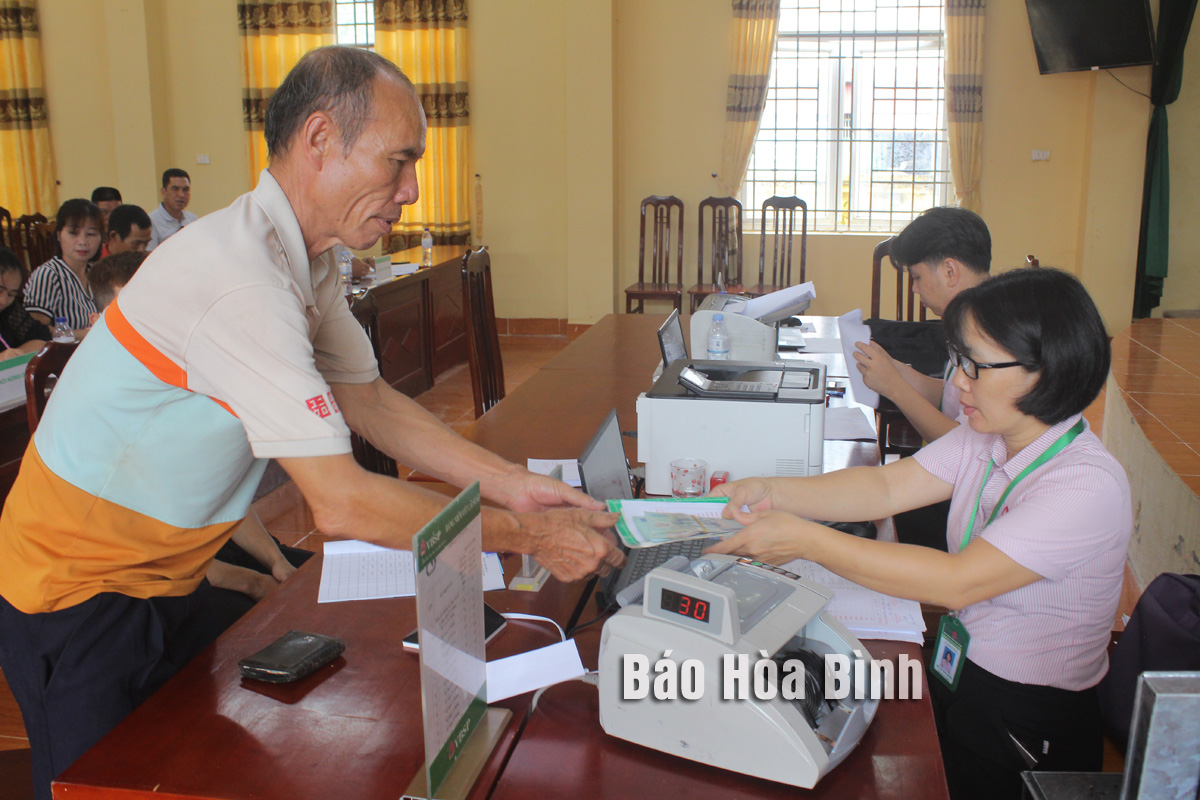



Mr. Bui Van Nam from Chua hamlet, Tu Ne commune (Tan Lac) has paid the students’ loans to the Bank for Social Policies after his child graduated from university and had the stable job.
One day in early June, Mr. Bui Van Nam from Chua hamlet, Tu Ne commune, arrived at the communal transaction point to settle the loan for pupils and students of the Bank for Social Policies. The joy and pride were clearly visible on the middle-aged man's face when his two sons both had the stable jobs thanks to the right decision many years ago. At that time, Mr. Nam's family decided to borrow the policy capital to invest in sending their children to college. The result after many years of "growing people” of his family is that one child is a teacher and the other is working in the medical field. Mr. Nam says: "The family still had many difficulties, so when we decided to give their children the opportunity to go to college, it was a huge pressure. Going to school far from home, there were many things to worry about and many expenses to spend, so without preferential capital support from the State, it would be very difficult for the children to attend university and get the results they have today. My family is very grateful for the the policy capital of the Party and State so that the children from disadvantaged households can have a good education”.
In Man Duc town, Mr. Ha Van Nhuong's family in Hong Duong area also picked the "sweet fruits” when receiving the policy credit loans. With the advantage of large garden land, Mr. Nhuong's family has planted more than 1 hectare of red grapefruit, green-skinned grapefruit, and at the same time they have raised buffalo, cow, and goat farming. Mr. Nhuong says: "The family has a grapefruit garden with quite a large area, so investing in fertilizer and care requires a large amount of capital. Through the savings and loan group, we learned about the employment loan program of the Bank fro Social Policies, and we applied for the loan. Thanks to the loan from the Bank for Social Policies, we have invested in fertilizer and the care of the grapefruit garden, and it has brought the higher economic efficiency than before”. It is known that Mr. Nhuong's family's economy is now increasingly stable with a loan of 50 million VND from Social Policy Bank for Social Policies. Growing grapefruit and raising livestock brings his family an income of over 150 million VND each year.
Mr. Nguyen Tuan Ngoc, the Director of Tan Lac District’s Transaction Office of the Bank for Social Policies, says: Currently, there are 15 policy credit programs being implemented in the whole district, the total outstanding debt reaches 575.4 billion VND with over 15,6 thousand households still having the outstanding debt. In the first 6 months of 2024, the bank has disbursed more than 105.7 billion VND to the poor households and other policy beneficiaries. With this capital source, over 300 employees have been created jobs, 675 clean water projects and 648 household-scale sanitation projects have been built.
The director of Tan Lac District’s Transaction Office of the Bank for Social Policies adds: Currently, the demand for the policy loans from the people in the district is still very large. In recent years, to supplement the capital sources for implementing the preferential credit programs, in addition to the capital allocated annually by the superior banks, the district ‘sBank for Social Policies has actively advised the District Party Committee, People's Council and People's Committee of the district to allocate a portion of the budget coming from the local budget capital entrusted to the district’s Bank for Social Policies. At the same time, we have actively mobilized the free capital from the population to make loans to the poor households and other policy beneficiaries.